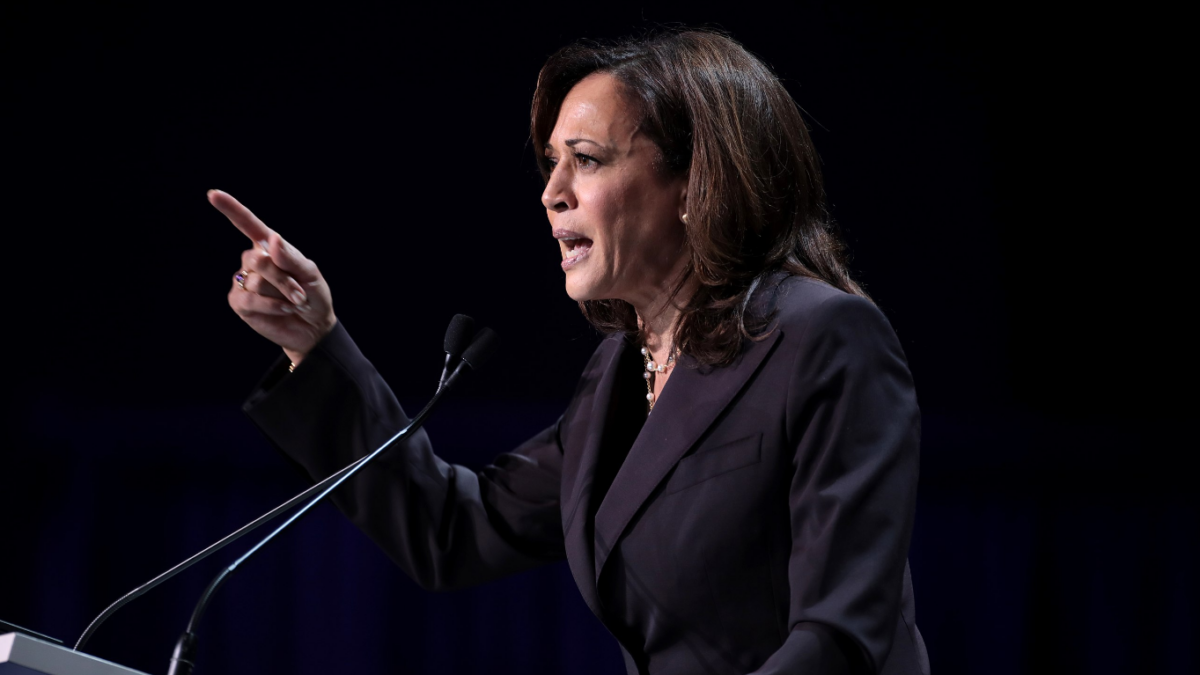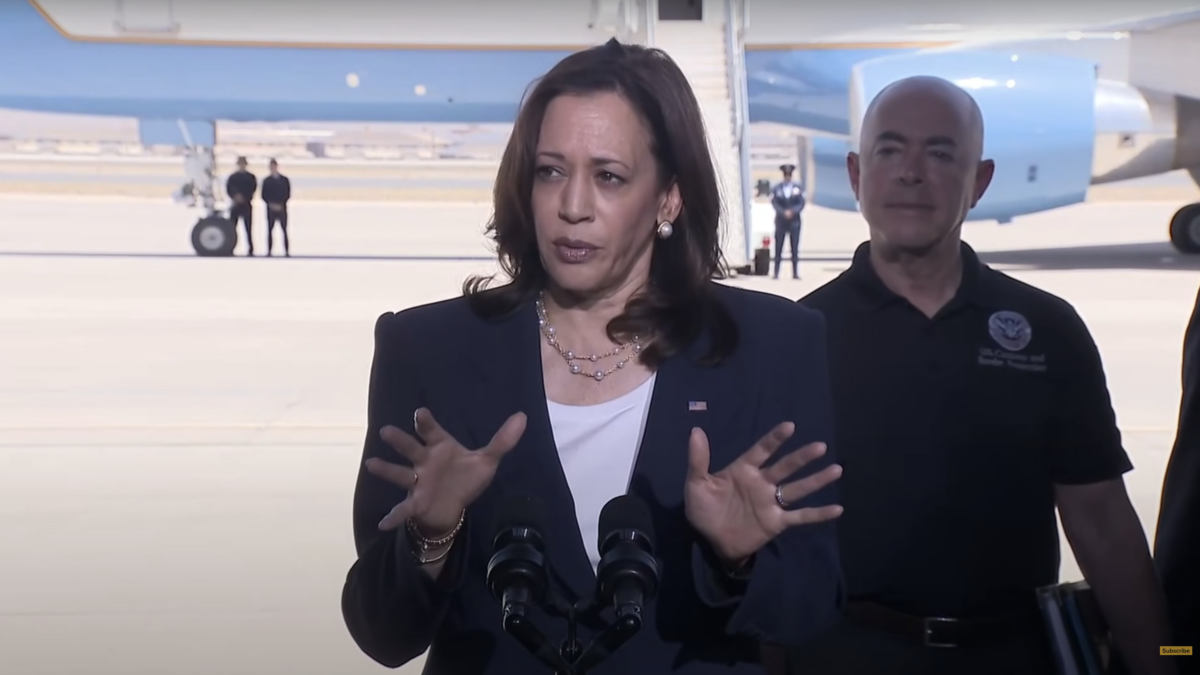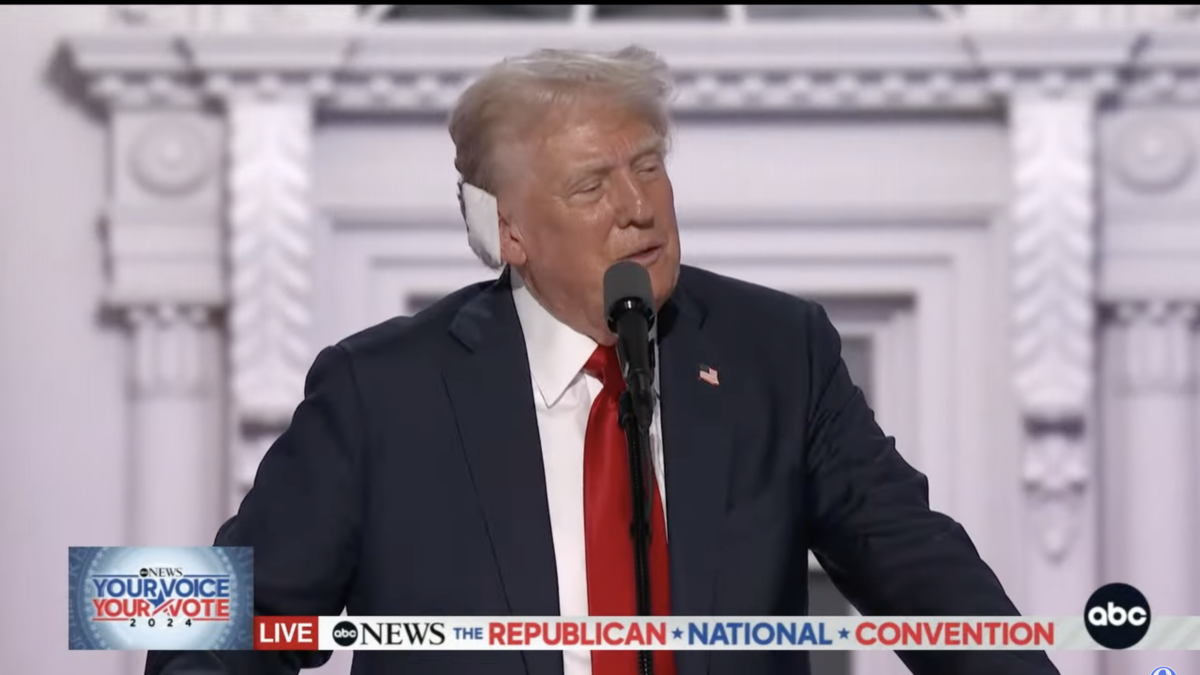Stephen Richer campaigned in Maricopa County, Arizona, in 2020 on the slogan that he would “make the Recorder’s Office boring again.” By any measure, he’s failed.
The self-styled “hardcore libertarian” was elected as a Republican after he drafted a blistering 228-page review of Maricopa County’s 2018 election administration as well as a 48-page audit lambasting the Democrat running the county’s elections. His pledge to be less political than his predecessor Adrian Fontes and restore confidence in elections generated support from Republicans eager to improve election administration in the populous county where more than 60 percent of Arizonans live.
Upon election to the county recorder seat, however, Richer abruptly and completely rejected his previous rhetoric and claims, even defending the integrity of Fontes, the man he said was so important to defeat. He now uses his perch as an opportunity to regularly defend the Democrat-run 2020 election in Maricopa County, write op-eds at CNN against the type of election audits he conducted to gain power, draft lengthy screeds lambasting Republican leaders and voters for their election integrity concerns, and push ranked-choice voting and other efforts critics say are disastrous for voter confidence in elections.
He even set up a Democrat-funded political action committee to support Arizona candidates who share his views, a move strongly rejected as unethical by ethical election officials. The Republican National Committee and Republican Party of Arizona just sued him for packing polls with Democrat workers and seeking to bury the paper trail.
And now he is alleged to have broken the law by using taxpayer resources to advocate against a ballot measure in Arizona that would improve voter identification methods for both unsupervised and in-person voters.
“Usually it takes a while for people to become co-opted by the system and reverse the positions they ran on. With Richer, it seemed to happen immediately,” said Gina Swoboda, executive director at the Voter Reference Foundation.
Illegal Lobbying Against Voter ID
The latest drama from the man who once pledged to support election integrity is his lobbying against Arizona’s Proposition 309, which would strengthen the state’s existing voter-ID laws. Current law requires only the signature of the voter. Under the proposal, however, voters casting an unsupervised mail-in ballot would be required to add two new pieces of identification: their date of birth and a voter ID number (usually found on a driver’s license or government-issued ID or the last four digits of a social security number). For voters casting a ballot in person, they can no longer present an alternative to a photo ID at the polls, such as a utility bill, but must present a government-issued ID.
The vast majority of Americans — a whopping 8 in 10 Americans, according to a new Gallup poll — support voter identification for balloting. This ballot measure is supported by the state’s major conservative groups and all Republican lawmakers, who passed the bill that sent this measure to the ballot. Left-wing groups and Democratic state lawmakers are opposed to the measure.
Joining the Democrats is Richer, who heads the lobbying group Arizona Association of County Recorders. He pushed through a vote opposing the ballot measure — for a while, falsely claiming he had the unanimous support of other recorders — and then posted on the county website a political message telling people how to vote on the ballot measure.
That’s where he got in trouble.
“[T]he County Recorder’s website is a publicly funded website, and using it as a vehicle to promote Mr. Richer’s political agenda is not only inappropriate, it is illegal,” a complaint filed with Arizona Attorney General Mark Brnovich said. “This website is not at Mr. Richer’s disposal to use as a campaign website for his favored political causes.”
Richer took down his political ad against the bill, but not before observers noted the document was created by Maricopa County Recorder’s Office employee Cassidy Claridge during work hours, in alleged violation of the same laws.
“[P]lacing his thumb on the scale illegally in this context [does] not auger well for maintaining a professional perception in other realms,” said Republican lawyer Timothy La Sota, who filed the complaint.
“It is quite concerning that he can’t even follow basic election law and yet we’re trusting him to administer our elections,” added Amy Yentes of the Arizona Free Enterprise Club.
Richer admitted he was wrong to use county resources to lobby for his preferred political outcome but suggested it was a minor issue. His former supporters aren’t so sure.
“As someone who was a staunch supporter of Richer, distributed his campaign literature in my neighborhood, and convinced as many people as I could to vote for him, I find his latest actions to be not only disappointing but deserving of scrutiny on multiple levels,” Jose Borrajero said in a letter to the editor.
Other Politicking
That was not the first time election integrity experts have worried about Richer’s inappropriate political activity. Less than a year after his election, Richer took the extremely unusual step of setting up an actual political action committee to run independent expenditure campaigns on behalf of candidates who joined him in refusing to acknowledge any problem with election administration. The Democrat-funded PAC was given the name “Pro-Democracy Republicans.”
The first donor, according to records filed with the Arizona secretary of state, was Mindy Finn Feinberg. If you remember the name, it’s because she and Evan McMullin ran a well-funded “Never Trump” campaign. She now operates a group that helps left-wing organizations with their plans to take over election administration.
The second donor was Sarah Longwell, a Bill Kristol acolyte who, like many other professional grifters in Washington, has spent her career loudly proclaiming herself to be Republican while receiving money to advocate for a wide variety of leftist policies and politicians. The other donors were Democrat supporters as well.
Longtime Maricopa County Recorder Helen Purcell, a Republican who held the position for nearly 30 years, told an Arizona paper that Richer’s political activity was extremely unwise. Voters question results if election officials participate politically in elections, she said. “People are too skeptical about our election process. So, stay above that fray so you don’t have any questions,” she told the Arizona Mirror. Richer’s response was that because he didn’t personally tabulate all the ballots, voters shouldn’t worry about his activism on behalf of preferred candidates and issues.
Newfound Opposition to Audits
Richer worked for the libertarian CATO Institute and the neoconservative American Enterprise Institute in Washington, D.C., before working as a lawyer and beginning his political career in Arizona. When he set about launching his political run, he drafted a 228-page report that cataloged problems with election systems in Arizona. He had no previous experience with election audits or reviews. In his report, he discussed problems with voting machines and printers, delays in voting, mysterious post-Election Day switches in vote totals, and problems with the delivery of mail-out ballots. The report read like many other reports from Republicans who grew concerned about radical changes to election processes pushed through by Democrat election officials in recent years.
Richer appeared to understand the partisan effects of many of these changes that moved recorder offices from the place where votes are recorded to places that ran Get Out The Vote efforts in ways that prejudicially favored Democrats.
He told the story about seeing Maricopa County election officials doing community outreach at the Women’s March but not the March For Life. He reviewed records that showed the office doing outreach at 56 explicitly Democrat Party events but only six Republican Party events. He saw many events with AZ Resist, Global Justice, and Teamsters, but few with conservative groups. He noted that all four community relations officers for Maricopa County were Democrats, some with lengthy employment histories with the Democrat Party.
“Again, these community relations personnel are tax-payer funded public employees. By using them in a statistically-convincing biased manner, Fontes showed that he is not a neutral umpire ‘calling balls and strikes.’ Instead he — for the first time in the county’s history — created a de facto partisan voter registration drive using public dollars,” Richer wrote. This is the exact type of complaint made by election integrity advocates across the country.
It was particularly impressive that Richer understood these problems even before the highly publicized takeover of government election systems was enabled by Democrat donor Mark Zuckerberg in 2020. Maricopa County received millions from Zuckerberg-funded entities, and the county flipped from Republican to Democrat in the 2020 election.
Even though the problems in 2020 were magnitudes greater than what Richer cataloged from the 2018 election, however, he abruptly changed his tune.
The ‘F’ Word for Me but Not for Thee
In Richer’s report, he noted that former Recorder Helen Purcell was “never at the front of the partisan battle; she never publicly campaigned for candidates appearing on her ballot; and she never publicly denigrated candidates appearing on her ballot. Quite the opposite for Fontes.”
It’s also the opposite of Richer, who literally set up a political action committee to support candidates who share his rejection of Republicans concerned about election integrity.
Richer also complained about his predecessor’s attacks on political opponents, a favorite pastime of Richer now that he holds the office. He specifically chastised Fontes for using the “F” word and for his hyperbolic attacks on Republicans he opposed. Richer now employs both of these practices.
In his audit, Richer made a big deal about how uncivil and political Fontes was, particularly compared to their predecessor Purcell.
“Never once did former Recorder Helen Purcell mistreat a voter or fellow public official,” Richer wrote. He quoted a political activist who said, “Helen Purcell never told a constituent to go ‘F’ themselves. She sat in a hearing room with constituents screaming in her face louder than I’ve ever seen it. And she reacted with grace and professionalism.”
By contrast, Richer wrote, Fontes had “fallen to new lows in civility and decorum.” When a Democrat constituent complained that a ballot designed by Fontes was confusing, Fontes responded, “How about you go F-yourself. If you can’t handle a little social media heat, then don’t criticize. By the way, is your Mom also running your campaign? She seems to solve all your problems.” Richer complained at length about Fontes’ rude and coarse remarks, which, he said, could “undermine public confidence in the election process.”
But a few weeks ago, Richer sent the unsolicited text “Are you f-cking kidding me?” to La Sota, after he had given a benign quote to a newspaper about an election-related court case. “If you really believe half the [expletive redacted] that is in this then I’m embarrassed for you,” he added. “I’m sorry you feel that way,” La Sota responded, to which Richer shot back, “I’m sorry to learn that you’re either a moron or immoral.” Told his comments were unbecoming of an elected official, Richer ranted, “Only one of us is lying before a court of law and prostituting ourselves at the expense of democracy.”
Other Maricopa County voters report similar temper tantrums and heated exchanges from Richer. Fontes was also reported to have a temper.
Arizona elections are ongoing, with unsupervised mail-in ballots being the predominant voting method. At least 1,000 of those ballots were delivered with only federal races listed, Arizona Secretary of State Katie Hobbs announced yesterday. Now campaigning against Kari Lake to be governor, Hobbs has denied the existence of election integrity problems in her state.









